NEWS
2025.05.14
Interview: Long-Thibaud International Competition Piano 2025
At the end of March 2025, one of the most esteemed international piano competitions in the world, the Long-Thibaud International Competition was held in Paris, France. Many young talents gathered and performed at this competition.
We talked about the competition with Saehyun Kim (1st prize winner), Masaharu Kambara (4th prize winner), Mr. Pavel Gililov (Jury member), Mr. Gérard Bekerman (President of the Long-Thibaud Fondation) and Mr. Shinya Kurata (Kawai’s most esteemed piano technician, MPA (Master Piano Artisan)).
Interviewed by Akemi Alink (Pianist / International Piano Competition Reporter)
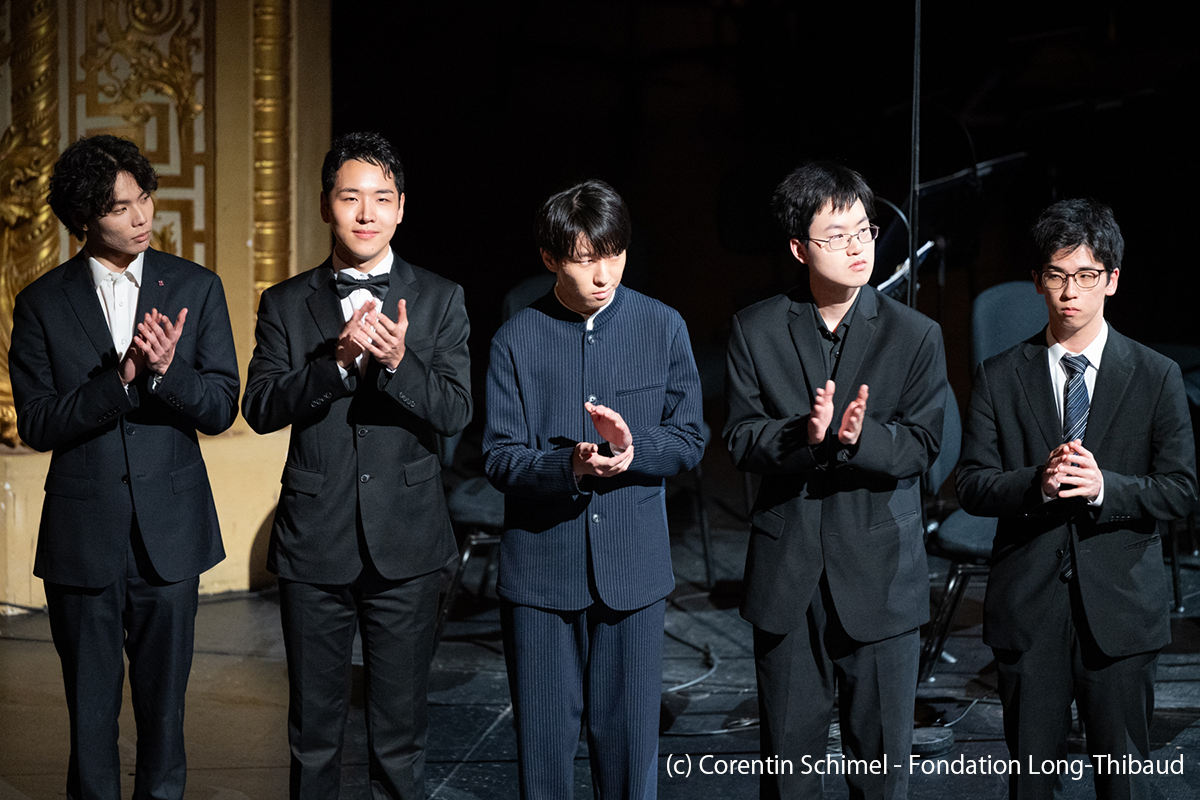
(From left) Tiankun Ma, Hyo Lee, Saehyun Kim, Eric Guo and Masaharu Kambara
1st Prize winner: Saehyun Kim
Congratulations on your 1st prize and happy birthday! (Kim celebrated his 18th birthday the day after the final.) I was amazed to learn that you have just turned 18 years old. How did you start to take piano lessons? Are your parents musicians as well?
Thank you so much! I started taking piano lessons when I was four years old. An upright piano sat in the living room of our apartment back then, and when my mother asked me if I wanted to take piano lessons, I replied “yes” without being aware of the magical path that awaited me. My parents are not musicians, although my mother took piano lessons in her childhood; my aunt studied piano in college.
I was moved by your deeply expressive performance of Rachmaninoff’s “Piano Concerto No. 3” in the Final. You were asked to play this concerto once more without notice immediately after the results were announced. It was a very interesting performance, with a different impression from the final round. How long are you working on this Rachmaninoff concerto? How did you dive so deep into this piece?
I worked intensely on the Third Piano Concerto by Rachmaninoff for about a month last year, in the Spring, when I had to prepare for three concerto appearances of this piece: with the Arkansas Philharmonic and the North Mississippi Symphony, under the baton of Maestro Steven Byess, and with the NEC Youth Philharmonic under the baton of Maestro David Loebel—the latter taking place in my second home town, Boston’s Jordan Hall. I brought this concerto back on a few other occasions, when I participated in the Summer and Winter Festivals of the Theo and Petra LIEVEN International Piano Foundation. Performing this concerto in various masterclasses helped me further expand my insight into the piece. Finally, I returned to the concerto about a month before the competition.
I heard your breathtaking solo performances as well during the gala yesterday.
You are still young. What kind of pianist/artist do you want to be?
I know that you are also studying with great artists and teachers, Dang Thai Son and HaeSun Paik, but do you have some favorite pianists?
Both my teachers, Dang Thai Son and HaeSun Paik, are two of my favorite pianists. To my mind, different pianists bring a special interpretation to a certain composer and their work. For instance, for interpretations of Chopin’s music by pianists in the 20th Century, I cherish the recordings by Arthur Rubinstein and Alfred Cortot. For interpretations of Rachmaninoff’s music, I admire those by Rachmaninoff himself!
At this moment, I don’t believe in setting a destination in life. Life is not linear like a subway train; choosing a destination rarely brings me there. I believe that if I am true to myself and the music every day, I will reach where I am destined to arrive.
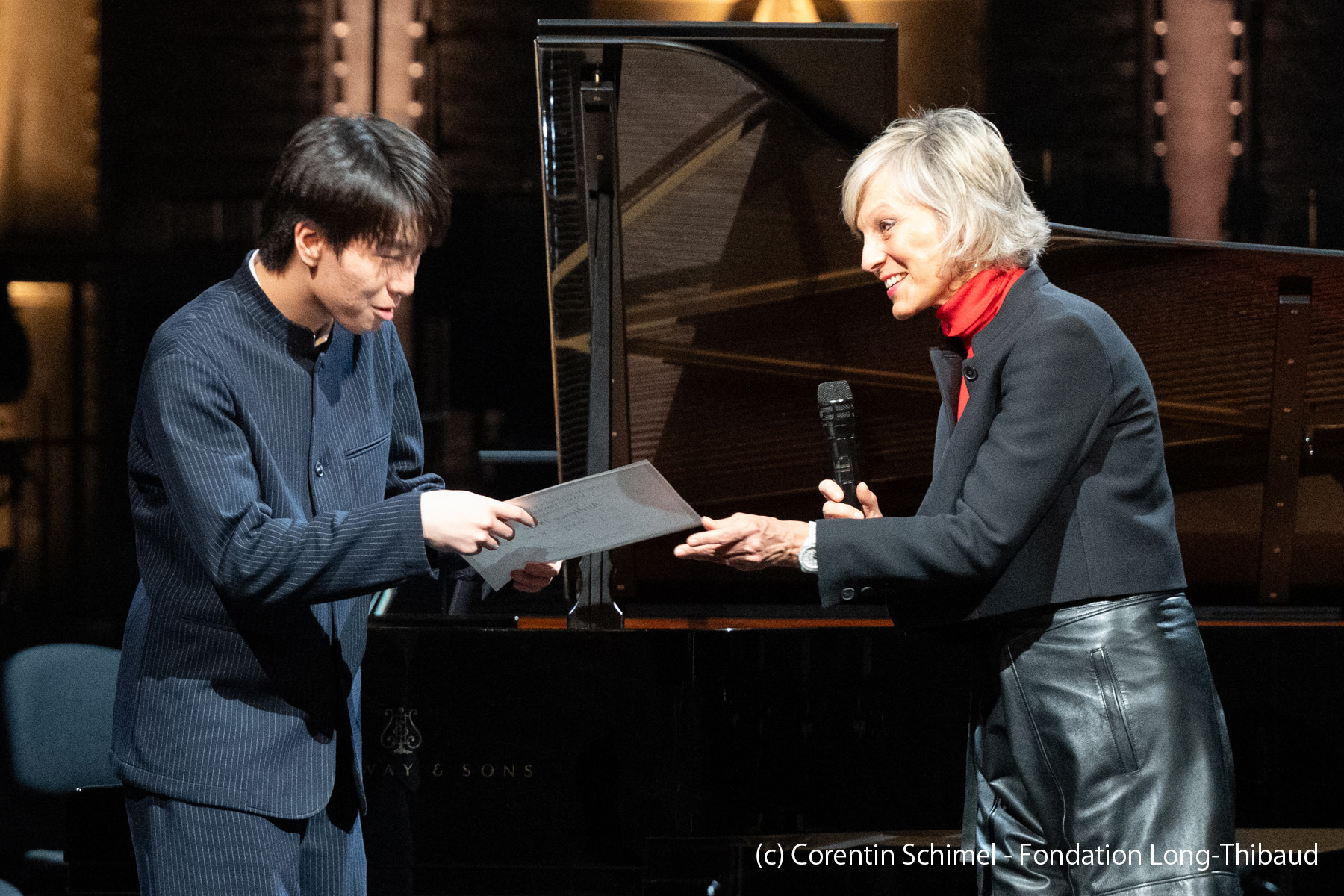
Saehyun Kim and Ms. Hélène Mercier
4th Prize winner: Masaharu Kambara
Congratulations for your 4th prize!
Thank you very much. Actually, I had been feeling unwell since the day before the first round of the competition, but perhaps that helped me to concentrate on my performance without any distractions. The day after I performed in the first round was the worst, but thankfully I recovered quickly afterwards and I’m glad that I was able to achieve good results in the end.
This time, I heard a bit of your performance of Brahms’ Four Ballades in the semi-final via streaming, and then listened to your performance of Brahms’ Piano Concerto No. 1 in the final at the Opéra-Comique Theater, and I was particularly drawn in by your introspective expression.
I’m glad to hear you say that. Actually, I like the way Brahms’ works express his inner feelings as if he were speaking to himself and I enjoy playing his works. I like playing them and listening to them, and I think it’s a good match for me. (laugh) I will continue to research more about how I can express his works.
This time, Steinway and Shigeru Kawai were the official pianos. I heard that the participants had to select a piano before the competition started without trying them out. Furthermore, you were not allowed to change instruments between rounds. How did you choose your instrument?
When I received an email from the secretariat regarding the selection of instruments before the competition started, I initially thought it was because of my poor English skills that I had misunderstood, as it was my first time to select a piano like this before trying out the instruments. (laugh)
First of all, I have always liked the Shigeru Kawai grand piano and am familiar with it. The main part of the semi-final was Brahms’ Four Ballades, and I wanted the audience to listen to this marvelous music. I chose Shigeru Kawai because I thought the warm tone of this piano in general and the expression of what I had in mind would be a good fit.
I heard from Mr. Kurata that he prepared the piano specially for you before the final, with the image of you playing Brahms’ Piano Concerto No. 1 at the Opéra-Comique.
I was very lucky to be able to play in the competition final with an instrument that was tuned in such a way. I was so happy to receive the support from so many people during the competition. Thank you very much!
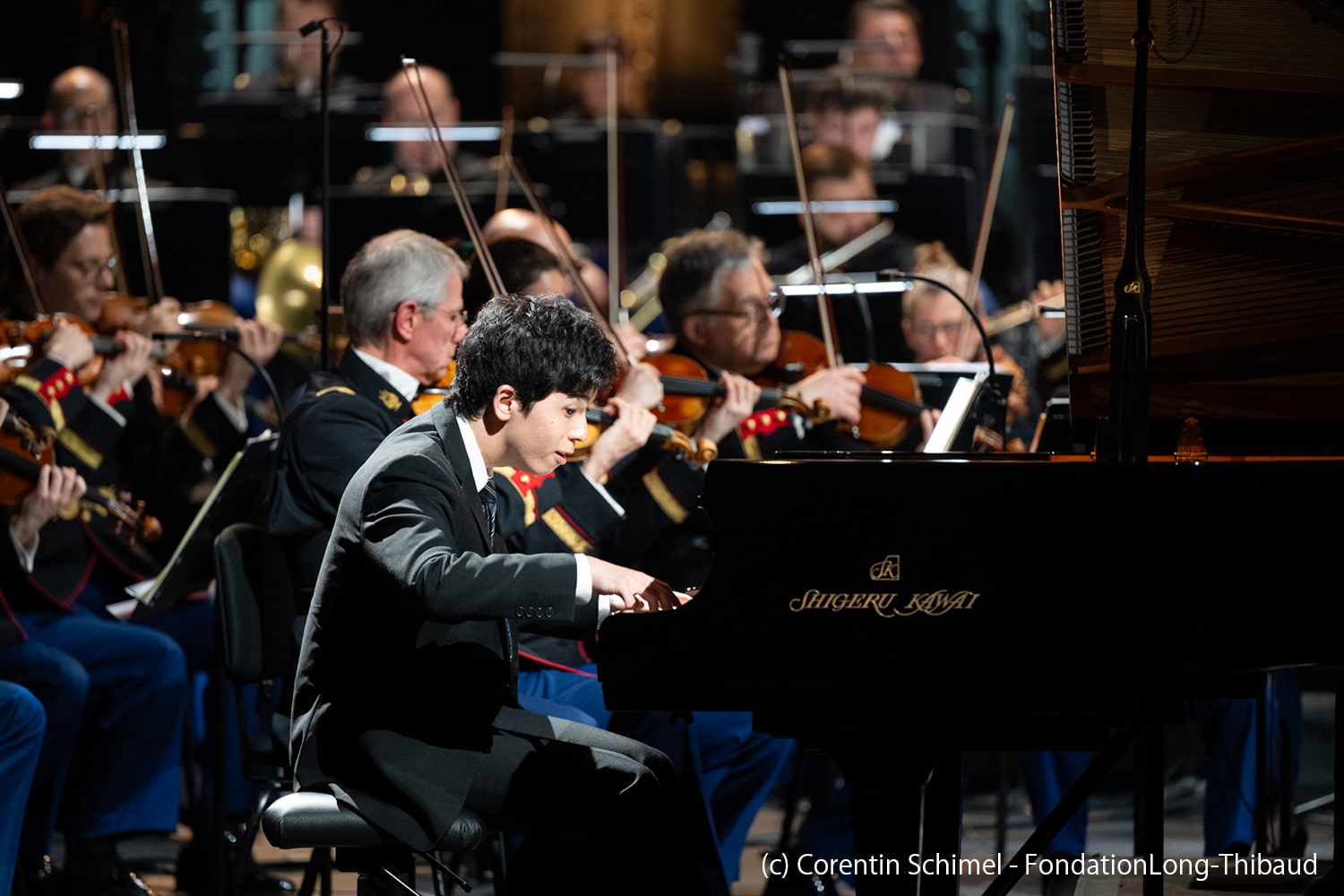
Masaharu Kambara (Final round)
Jury Member: Pavel Gililov
Thank you very much for making time. Could you tell me your impressions of this competition?
The Long-Thibaud International Competition is one of the most important international music competitions of today, and this edition was also very interesting. The winner, Kim, has a deep sense of music and his performances were always consistent; he is already a professional pianist. He played the same concerto twice in a day, at the final and at the gala concert but his interpretations were not the same which shows that he is an artist. He was outstanding from his performance in the first round. Mozart’s Sonata K.281, performed in the second round, was also very good. I think it is difficult to find a pianist who can play each of Chopin’s Etudes Op. 25 to such a level.
The Shigeru Kawai SK-EX full concert grand piano used this time was always kept in top condition. Although I didn’t actually play the instrument this time, it had a very warm sound and seemed easy to play. Even in the final concerto, the sound reached the judges’ seats very well. I thought that Mr. Kambara’s performance of Brahms’ Piano Concerto No. 1 on Shigeru Kawai was sophisticated and very good.
Most of the qualifiers for this competition were from Asia. This is a common trend in international music competitions in recent years. What do you think about this situation?
That’s the reality and I don’t think nationality or origin matters when it comes to studying Western music.
I have many excellent students from Asia. First of all, I think Asian people are generally hardworking and practice a lot, and that may be one of the reasons for their success in competitions. In Asia, children tend to start piano lessons at a younger age than in Europe. We believe that starting piano at a young age is better for the ears and for a strong mentality. Speaking of childhood, I went to the same music school in Donetsk, Ukraine, as one of the other jury members, Mikhail Rudy, about 70 years ago. I was thrilled to meet him again after such a long time.
There have been so many international piano competitions in recent years. What do you think about the significance of the competitions?
I think it is meaningful for young pianists to not just study music haphazardly, but to prepare a variety of repertoire for competitions and perform them on stage. I’m sure the performances and results will vary, but every experience will be beneficial to them. There are several elements to success in music, and our lives are a series of choices. Our job is to find talented pianists who continue to pursue music, and those who cannot live without music.
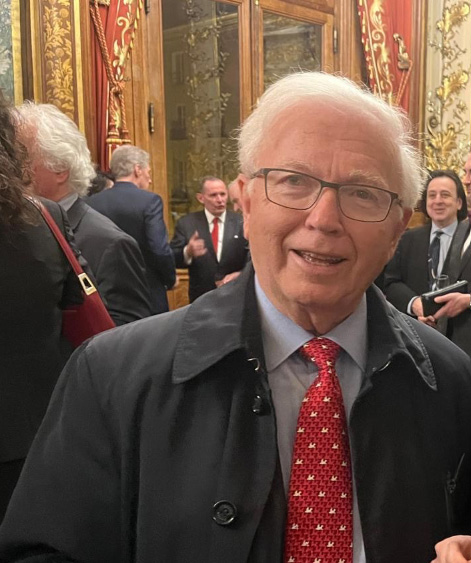
Mr. Pavel Gililov
President of the Long-Thibaud Fondation: Gérard Bekerman
Congratulations on this edition! I attended the final and gala concerts, and I think it was a very high-level competition. In recent years, the age of participants in competitions has been decreasing and three of the five finalists in this year’s competition were 17 years old, and the highest age was 22.
It was an amazing competition, and it was also strange…… The results are not related to age. Age does not matter. Some people still play the piano with just their fingers even at the age of 40, while others can already play musically in their teens. The winner, Kim’s performance of Mozart’s sonata was like an opera. I’m happy that he won, because I think he really captured the essence of humanity and it was amazing. I think he will become one of the great pianists of the 21st Century in the future.
This time, the official pianos were a Steinway and a Shigeru Kawai. I heard that the 32 contestants had to choose their instruments via email before the competition started without being able to try out the instruments. It must not have been an easy decision for the pianists, so why without trying them out?
This was done due to scheduling issues. Since it takes time to switch between the two instruments, we asked the contestants in advance which instrument they would like to play. The order of performance was also divided according to the selected instruments: the pianists who chose Shigeru Kawai first. At the previous piano competition in 2022, the official pianos were a Steinway and a Fazioli, and the same procedure was followed this time. I know Steinway pianos because they are often used in concerts and competitions, and I thought that the Shigeru Kawai was a dream-like, wonderful instrument.
What is the goal of the Long-Thibaud International Competition?
The Long-Thibaud International Competition is a member of the World Federation of International Music Competitions and I respect competitions such as the Chopin Competition and the Queen Elisabeth Competition, which are also members. Competitions can be also a target for young pianists and give them many different chances. For example, this year’s winner will receive a prize of 35,000 euros and the opportunity to perform in 25 to 30 concerts at music festivals such as the Concert de Paris and La Roque d’Anthéron. Our mission is to support the careers of young artists.
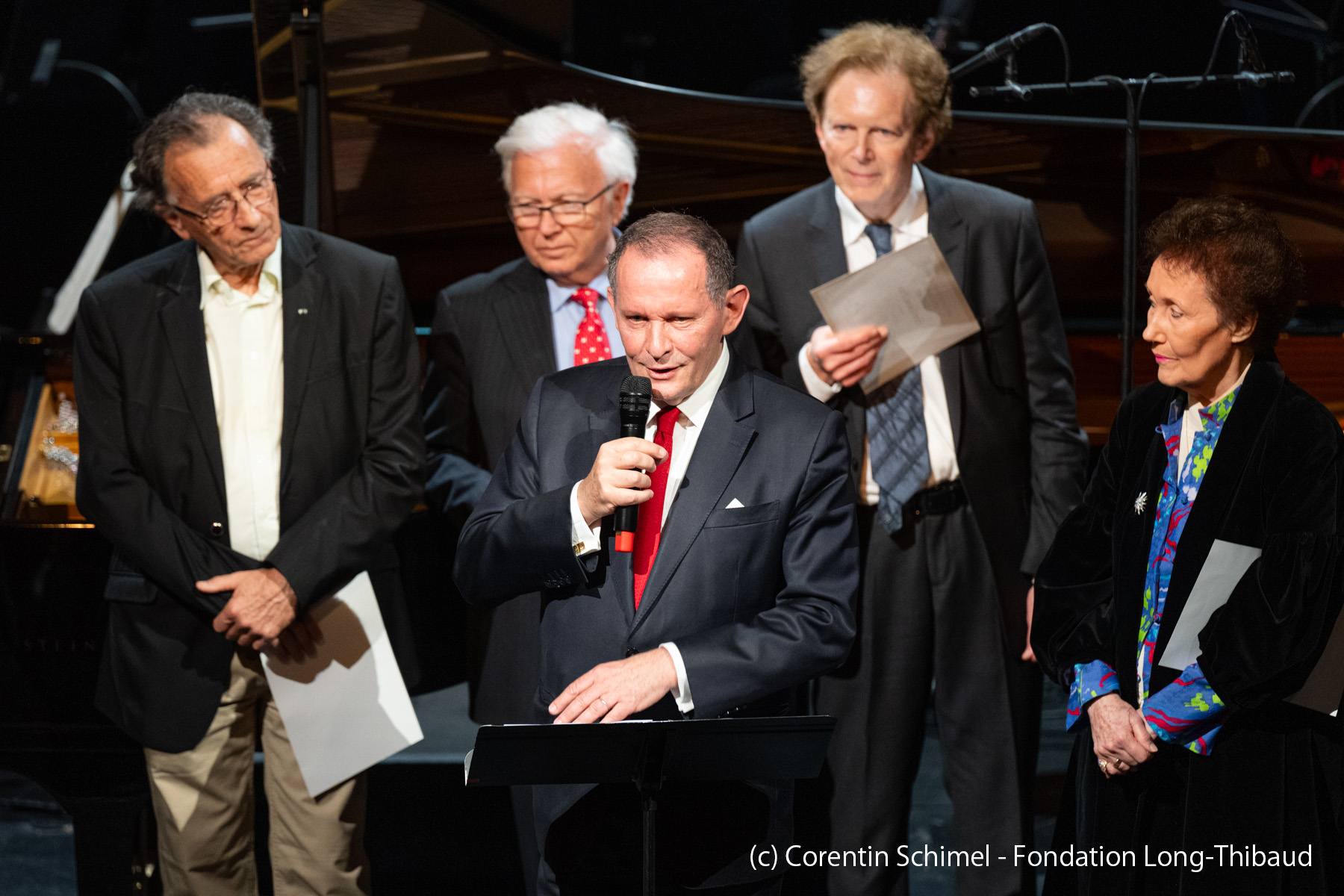
Mr. Gérard Bekerman (center) and jury members
Piano Technician (MPA): Shinya Kurata
I thought the piano sounded really incredible, but I also know that it’s impossible to produce such a sound without you. I listened to the final at the Opéra-Comique, and from Kambara’s performance of Brahms’ Piano Concerto No. 1 on Shigeru Kawai, it seemed like he was effortlessly letting the sound reach the audience, and the tone sometimes sounded like a human singing voice. The venue was different from the preliminary rounds, but how did you adjust for the finals?
The venue for the final is larger and the acoustics are different. After the semi-final, I asked Mr. Kambara about his request, and he said, “Since it will be a piano concerto with an orchestra, I want to carry my piano sound to the audience and jury members as much as possible.” When Mr. Kambara was performing Brahms’ Four Ballades in the semi-finals, I listened to the tone and observed his touch and the characteristics of his playing style. For the final stage, I made adjustments based on the image of Mr. Kambara’s tone when he was playing Brahms’ Piano Concerto No. 1 at the Opéra-Comique. I made adjustments while checking many times to make sure the sound was resonating clearly, especially to the jury’s seats.
Can you tell me about the instrument you used in this competition?
This time, we brought two Shigeru Kawai pianos from Japan, after making adjustments, we decided which one was better. In the end, it became the piano used also at the Takamatsu International Piano Competition in 2023. In fact, this is the piano that I was involved with from the production stage, and I was constantly adjusting it before and during the Takamatsu International Piano Competition. This piano is like my own child, I know all its personalities and habits. This instrument will soon be celebrating its 6th birthday (laugh). This year’s contestants of the Long-Thibaud competition had to select their pianos without trying them out, so I felt a strong responsibility not to disappoint those who had chosen Shigeru Kawai. At the Takamatsu competition, the piano received very good feedback in terms of tone and mechanics. Two years have passed since then, and the sound has improved, so I chose this piano.
Do you think there is something in common among pianists who choose Shigeru Kawai?
When I talk to people who play Shigeru Kawai instruments on a daily basis and people who choose Shigeru Kawai, I find that they all want something in common. The characteristic of the Shigeru Kawai grand pianos include its ability to produce beautiful pianissimos with both bright-sounding instruments and mellow-sounding instruments, and its warm, colourful tones that fills the venue, so I believe that pianists who are looking for that kind of tone are choosing our piano. Mr. Kambara’s performance of Brahms’ piano concerto in the final was also a wonderful performance that took full advantage of the characteristics of that instrument.
I would like to thank once again all the pianists who played the Shigeru Kawai piano at the Long-Thibaud International Competition.
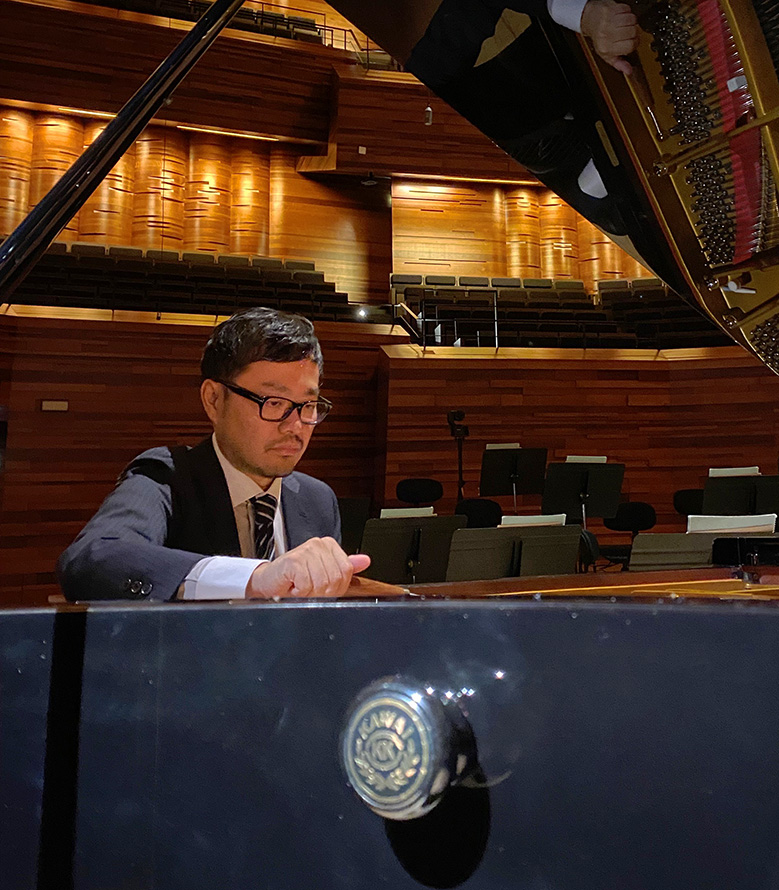
Mr. Shinya Kurata
About the Long-Thibaud International Competition
The Long-Thibaud Competition was created more than 80 years ago by the renowned pianist Marguerite Long to whom Maurice Ravel dedicated his concerto in G and by the no less famous violinist Jacques Thibaud. The Long-Thibaud Competition has contributed to making these artists legends during their lifetimes, faithful to its noble aims: promoting talents, transmitting the love of music to young people, facilitating their careers, their tours, contributing to their international reputation. Such is the vocation of the Long-Thibaud. The laureates receive exceptional prizes: financial support, recording opportunities, concert proposals, instrument loans as well as worldwide visibility thanks to the generous encouragement of patrons and sponsors. These artists are accompanied in their international ascension within the professional musical world.
Official website: https://www.long-thibaud.org
About the Shigeru Kawai SK-EX full concert grand piano and MPA
Unveiled in 2001 as the flagship instrument of the Shigeru Kawai line, the SK-EX concert grand piano is hand-crafted in limited numbers following a unique ‘prototyping’ creation process. In order to achieve the supreme range of expression required in a concert piano, each instrument utilizes a variety of carefully selected materials, with premium aged spruce soundboards. Shigeru Kawai instruments adopt the advanced Millennium III keyboard action, featuring extended wooden keys and advanced ABS Carbon action parts, providing superior speed and responsiveness than conventional wooden action parts, allowing pianists to express a greater range of feeling and emotion in their performance.
And Kawai’s most esteemed sound creators are proudly known as Master Piano Artisans (MPA).
They are the only individuals who can send Shigeru Kawai pianos out into the world.
The title of MPA is a special qualification, bestowed upon the finest piano technicians – those who possess skill, dedication, and a passion for music.
Official website: https://www.shigerukawai.jp/en/

